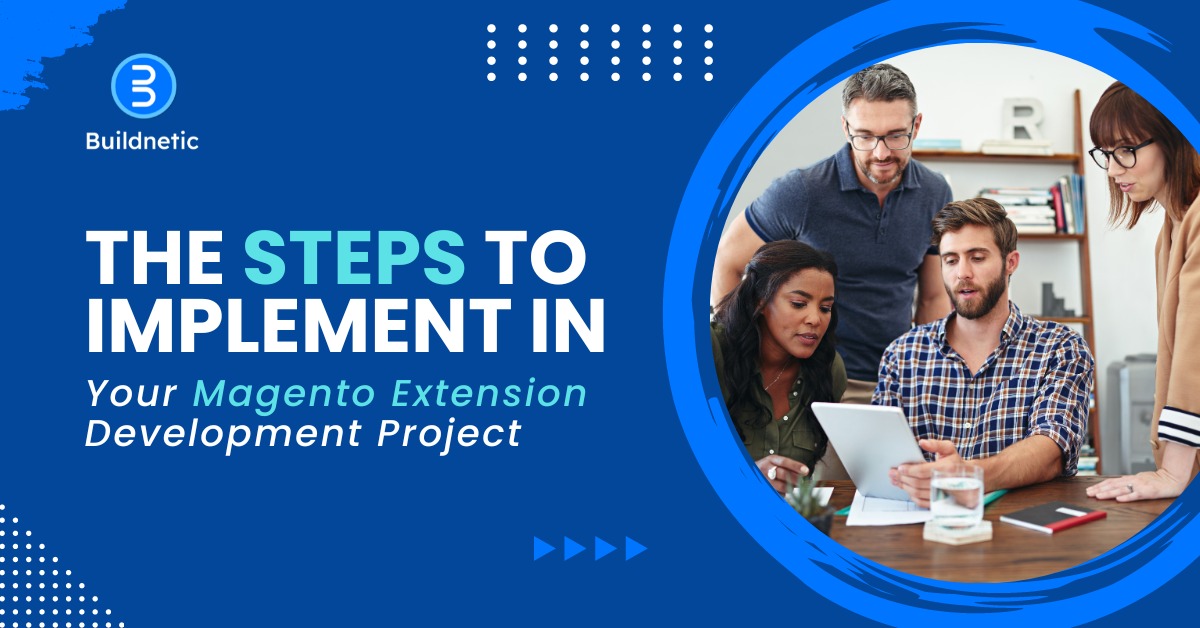
Magento, one of the world's leading e-commerce platforms, offers incredible flexibility through its extension system. For businesses looking to enhance their online stores, Magento extension development can provide custom functionality tailored to specific needs. Whether you're a developer embarking on an extension project or a business owner considering custom extensions, understanding the development process is crucial.
Let's explore the essential steps to implement in your Magento extension development project.
Define Your Extension's Purpose and Requirements
Before diving into development, clearly outline your extension's purpose and functionality. Identify the problem it solves or the feature it adds to the Magento store. Create a detailed list of requirements, including:
- Core functionality
- User interface elements
- Integration points with Magento's core
- Performance expectations
- Compatibility requirements (e.g., Magento versions, PHP versions)
Plan the Extension Structure
With requirements in hand, plan your extension's structure. This includes:
- Determining the appropriate module name
- Outlining the file structure
- Identifying necessary configuration files
- Planning database schema changes (if required)
A well-planned structure ensures your extension adheres to Magento's best practices and coding standards.
Set Up the Development Environment
Create a dedicated development environment for your extension. This typically involves:
- Installing a local Magento instance
- Setting up version control (e.g., Git)
- Configuring your IDE with Magento -specific tools and linters
A proper development environment streamlines the coding process and helps maintain code quality.
Create the Basic Module Structure
Start by creating the basic module structure, including:
- The `registration.php` file
- The `module.xml` file for declaring your module
- A `composer.json` file if you plan to distribute your extension
This step establishes your extension within the Magento ecosystem.
Develop Core Functionality
With the foundation in place, begin developing your extension's core functionality. This may involve:
- Creating new models, resource models, and collections
- Implementing business logic in service contracts
- Developing admin interfaces using **Magento's** UI components
- Creating frontend blocks and templates
Follow Magento's coding standards and best practices throughout development.
Implement Database Operations
If your extension requires database interactions:
- Create installation and upgrade scripts
- Use Magento's ORM layer for database operations
- Ensure proper indexing for performance
Proper database handling is crucial for extension performance and Magento compatibility.
Add Configuration Options
Make your extension flexible by adding configuration options in the Magento admin panel. This typically involves:
- Creating system.xml for admin configuration fields
- Implementing configuration models to retrieve and use these settings
Configurable extensions offer greater value and adaptability to users.
Develop Unit and Integration Tests
Quality assurance is critical in Magento extension development. Implement:
- Unit tests for individual classes and methods
- Integration tests to ensure proper interaction with Magento's core
Thorough testing helps catch issues early and ensures extension reliability.
Create Documentation
Comprehensive documentation is essential for both users and other developers. Include:
- Installation instructions
- Configuration guides
- User manuals
- API documentation (if applicable)
Well-documented extensions are more likely to be adopted and correctly used.
Package and Distribute
Finally, package your extension for distribution:
- Create a composer package
- Prepare for submission to the Magento Marketplace (if applicable)
- Set up a distribution channel (e.g., your website, GitHub)
Proper packaging ensures easy installation and updates for users.
By following these steps, you can create high-quality, maintainable Magento extensions that add real value to e-commerce stores. Remember, Magento extension development is an iterative process. Be prepared to refine and update your extension based on user feedback and Magento platform updates.
Magento Extension Development Services at Buildnetic!
At Buildnetic, we specialize in providing top-tier Magento extension development services to businesses worldwide. Our team of experienced Magento developers understands the intricacies of the platform and follows best practices to deliver high-quality, custom extensions that meet your specific business needs.
For businesses in the Netherlands looking to hire Magento developers, Buildnetic offers a pool of skilled professionals who can seamlessly integrate with your team. Our developers are well-versed in the latest Magento technologies and can help you create extensions that enhance your e-commerce store's functionality and user experience.
Whether you need a simple plugin or a complex module, our Magento extension development services cover the entire development lifecycle. From conceptualization to deployment and ongoing support, we ensure that your extension not only meets your current requirements but is also scalable and maintainable for future needs.
Choose Buildnetic for your Magento extension development projects and experience the difference that expertise, dedication, and customer-focused solutions can make for your e-commerce business.